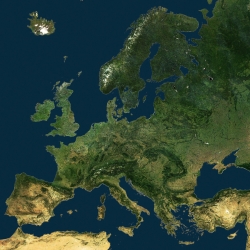June 21, 2024
 Critical gaps have formed across Europe’s technology sector, with skills, investment and innovation being stunted in vital areas such as AI, quantum computing and space technology, according to a report from DIGITALEUROPE. The study titled ‘The EU’s Critical Gap: Rethinking Economic Security to Put Europe Back on the Map,’ claims that Europe is significantly lagging in key technologies. Among 8 technologies that were analysed, Europe was shown to be lagging behind in 7, only leading in advanced connectivity, with major investments and profits in this sector are being led primarily by the US.
Critical gaps have formed across Europe’s technology sector, with skills, investment and innovation being stunted in vital areas such as AI, quantum computing and space technology, according to a report from DIGITALEUROPE. The study titled ‘The EU’s Critical Gap: Rethinking Economic Security to Put Europe Back on the Map,’ claims that Europe is significantly lagging in key technologies. Among 8 technologies that were analysed, Europe was shown to be lagging behind in 7, only leading in advanced connectivity, with major investments and profits in this sector are being led primarily by the US.
The study argues that there is a significant shortfall in public and private investment across several critical technologies, particularly AI, quantum computing and space technology with investment in AI startups being one-seventh of that in the US.
Key findings of the study:
- EU lags in most critical technologies: Europe lags global rivals in 7 of the 8 technologies analysed, only leading in advanced connectivity- and even in this area, investments and profits are mainly captured by the US. In advanced manufacturing, health biotech, energy tech, space technologies and quantum we have competences but there is no room for complacency as the EU could be rapidly losing ground. The EU is further behind in AI and advanced semiconductors, due to a lack of presence in key supply chain chokepoints.
- Investment gap hinders innovation: The study claims to reveal a significant shortfall in public and private investment across several critical technologies, particularly AI, quantum computing, and space tech. For example, private investment into AI start-ups and scale-ups in the EU is about one-seventh of that of the US, and about three times less than in the US for quantum. This financial gap hampers the EU’s ability to develop robust industries and compete globally.
- R&D strength unmatched by commercialisation: While excelling in research and development across many technology areas, including in advanced connectivity, advanced semiconductors, quantum or space technologies, the EU struggles to translate it into manufacturing and commercialisation. This limits the ability to capture the full economic value of these innovations within Europe.
- Regulation stifles growth: Complex regulations hinder European companies’ growth and scalability, often forcing them to seek more favourable markets.
- Talent shortage threatens future: Europe faces a critical talent shortage in key areas like AI engineering, quantum computing, and additive manufacturing. This limits our capacity to compete and innovate in these rapidly evolving fields

